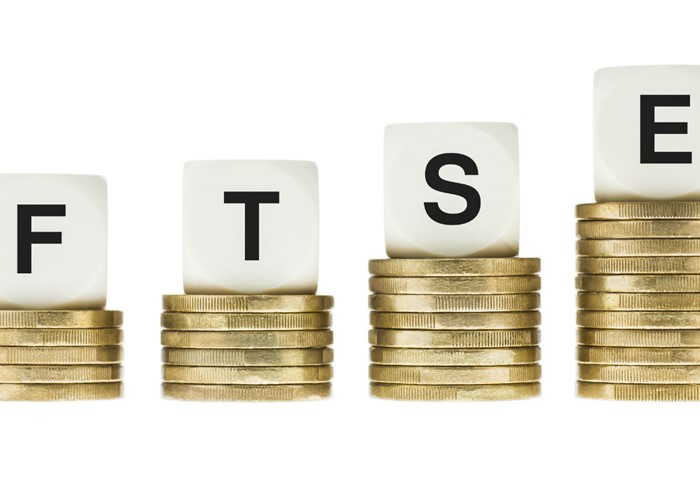Investors should ignore Greece and buy more shares

Now is a great time to invest.
June was an awful month for the FTSE 100 index.
It dipped more than 6.6% in 22 trading days, and it also fell four days in a row on three separate occasions in over the month.
The main cause for this alarm among investors was Greece and, specifically, fears that a debt default will ultimately force it to exit the eurozone.
Investors should relax
However, it would be a mistake to be swayed by the nerves being exhibited by the rest of the market.
Here is why I think investors should ignore Greece and carry on buying shares.
1. Greece's economy is tiny
Greece's economic crash since 2008 has been a terrible tragedy for its people, who have seen their economy collapse in size by a quarter during seven years of recession. However, in global terms, Greece's gross domestic product (GDP) is a mere $238 billion, placing it 43rd in world GDP rankings.
2. The UK economy is vast
UK GDP last year was $3,153 billion, making it the world's fifth-largest economy and more than 13 times bigger than Greece's. What's more, Greece's economy is heavily dependent on shipping, agriculture and tourism, while ours is far more diversified and includes huge financial and service sectors. In economic terms, when compared to us, Greece is a minnow.
Enjoy tax-free returns from your investing with a Stocks & Shares ISA
3. Greece's foreign debts are not so huge
During recent news coverage of this crisis, Greece's massive public debt has been headline news. Presently, Greece has around €323 billion of public debt, which is a crushing burden for such a small nation (175% of GDP), but not significant in a global context.
For example, the UK's total state debt is £1.56 trillion, a vastly larger sum (but 'only' 82% of our GDP).
4. The UK won't lose much from a Greek default
Of Greece's debt of €323 billion, €246 billion is owed to bailout funds from the International Monetary Fund (IMF), European Central Bank (ECB) and European Union (EU). Of these funds, €56 billion came from Germany, €42 billion from France and €37 billion from Italy.
As the UK is not a member of the eurozone, our potential losses are limited to our modest share of the €32 billion the IMF lent to Greece. In short, were Greece never to pay back a single cent, direct British loan losses would be trivial.
Enjoy tax-free returns from your investing with a Stocks & Shares ISA
5. We have our own currency
If Greece votes to leave the single currency, it would be a disaster for the remaining members of the Euro. But the UK would hardly suffer. After all, we have our own currency and our own central bank.
6. The UK economy is on the up
The UK is set to be the fastest-growing economy in the G7 group of developed nations this year, having also notched up this title in 2014. That means our national output in 2015 is expected to grow faster than those of the United States, Canada, France, Germany, Italy and Japan.
While GDP growth does not directly correlate to rising share prices, what's good for the UK economy is good for British firms, and what's good for business is, ultimately, good for shareholders.
7. Corporate taxes are coming down
In an effort to keep Britain competitive in the global business arena, the Chancellor has been radically reducing business taxes. In particular, Corporation Tax has tumbled in recent years, dropping seven percentage points since 2010/11.
With corporate taxes expected to fall further, shareholders would gain from higher profits and improved earnings and dividends. This bumper bonus will go on long after the Grexit is history.
Enjoy tax-free returns from your investing with a Stocks & Shares ISA
8. Today's companies are fighting fit
When the global financial crisis of 2007/09 came along, it caught UK PLC by surprise. The bursting of the credit and housing bubbles killed off hundreds of companies that were over-extended, over-borrowed or over-manned.
With weaker competitors put out of business and the global economy rising progressively since those dark days, today's corporate survivors are in good health. Profits and earnings are hitting new highs, balance sheets have been strengthened, and top businesses are awash with record levels of cash. This backs the idea of adding to existing shareholdings or diversifying into other healthy businesses.
9. Shares are not yet expensive
At the peak of the dotcom boom in 2000, the price-earnings ratio of the FTSE 100 (a measure of its relative value) soared to around 33, clearly in bubble territory. Today, the PER is around 16, a little above its long-term average of 15. Prices are a long way from bubble territory.
10. What else would you buy?
Today, the FTSE 100 trades on an earnings yield (the reciprocal of the PER) nearing 6.5% and a dividend yield of 3.6%.
By comparison, the interest rate from cash savings is 2% a year at best. And the annual income from 10-year, high-quality government bonds isn't much better: UK gilts yield 2.1% and US Treasurys yield 2.38%. With these assets barely keeping pace with inflation, what liquid assets are attractive, other than shares?
What do you think? Is Cliff right to be so positive about buying shares now? Let us know your thoughts in the comments box below.
Enjoy tax-free returns from your investing with a Stocks & Shares ISA
More on investing:
Five FTSE 100 bargains investors should consider
Comments
Be the first to comment
Do you want to comment on this article? You need to be signed in for this feature